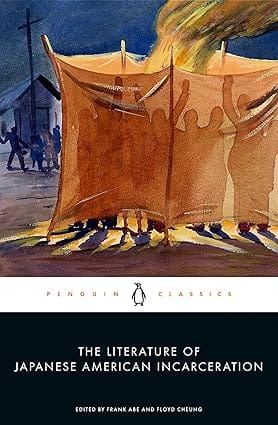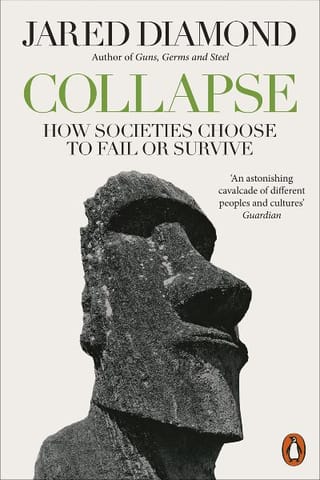WELCOME TO MIDLAND BOOK SHOP!
SHOP FOR
-
Contemporary Fiction
- Contemporary Fiction
-
Children
- Children
-
Comics & Graphic Novels
- Comics & Graphic Novels
-
Non-Fiction
- Non-Fiction
-
Fiction
- Fiction
Shop No.20, Aurobindo Palace Market, Hauz Khas, Near Church +91 9818282497 | 011 26867121
110016
New Delhi
IN
Midland The Book Shop ™
Shop No.20, Aurobindo Palace Market, Hauz Khas, Near Church +91 9818282497 | 011 26867121
New Delhi,
IN
+919871604786
https://www.midlandbookshop.com/s/607fe93d7eafcac1f2c73ea4/6468e33c3c35585403eee048/without-tag-line-480x480.png"
[email protected]
9780143133285
669512d0929377002445301c
The Literature Of Japanese American Incarceration
https://www.midlandbookshop.com/s/607fe93d7eafcac1f2c73ea4/669512d19293770024453024/9176bbuqgkl-_sy425_.jpg
9780143133285
“An essential volume” —Hua Hsu, The New Yorker
The collective voice of Japanese Americans defined by a specific moment in time: the four years of World War II during which the US government expelled resident aliens and its own citizens from their homes and imprisoned 125,000 of them in American concentration camps, based solely upon the race they shared with a wartime enemy.
A Penguin Classic
This anthology presents a new vision that recovers and reframes the literature produced by the people targeted by the actions of President Franklin D. Roosevelt and Congress to deny Americans of Japanese ancestry any individual hearings or other due process after the Japanese attack at Pearl Harbor. From nearly seventy selections of fiction, poetry, essays, memoirs, and letters emerges a shared story of the struggle to retain personal integrity in the face of increasing dehumanization – all anchored by the key government documents that incite the action.
The selections favor the pointed over the poignant, and the unknown over the familiar, with several new translations among previously unseen works that have been long overlooked on the shelf, buried in the archives, or languished unread in the Japanese language. The writings are presented chronologically so that readers can trace the continuum of events as the incarcerees experienced it.
The contributors span incarcerees, their children born in or soon after the camps, and their descendants who reflect on the long-term consequences of mass incarceration for themselves and the nation. Many of the voices are those of protest. Some are those of accommodation. All are authentic. Together they form an epic narrative with a singular vision of America’s past, one with disturbing resonances with the American present.
The collective voice of Japanese Americans defined by a specific moment in time: the four years of World War II during which the US government expelled resident aliens and its own citizens from their homes and imprisoned 125,000 of them in American concentration camps, based solely upon the race they shared with a wartime enemy.
A Penguin Classic
This anthology presents a new vision that recovers and reframes the literature produced by the people targeted by the actions of President Franklin D. Roosevelt and Congress to deny Americans of Japanese ancestry any individual hearings or other due process after the Japanese attack at Pearl Harbor. From nearly seventy selections of fiction, poetry, essays, memoirs, and letters emerges a shared story of the struggle to retain personal integrity in the face of increasing dehumanization – all anchored by the key government documents that incite the action.
The selections favor the pointed over the poignant, and the unknown over the familiar, with several new translations among previously unseen works that have been long overlooked on the shelf, buried in the archives, or languished unread in the Japanese language. The writings are presented chronologically so that readers can trace the continuum of events as the incarcerees experienced it.
The contributors span incarcerees, their children born in or soon after the camps, and their descendants who reflect on the long-term consequences of mass incarceration for themselves and the nation. Many of the voices are those of protest. Some are those of accommodation. All are authentic. Together they form an epic narrative with a singular vision of America’s past, one with disturbing resonances with the American present.
Review
“An essential volume...Although there have been many books written on the history of incarceration, few have captured the kind of emotional detail that comes through in the largely first-person accounts collected by Abe and Cheung. Their selections paint a complicated picture, convening hopeful, patriotic idealists, righteous firebrands, and downtrodden cynics.” —Hua Hsu, The New Yorker
“The Literature of Japanese American Incarceration, will undoubtedly serve as a seminal text for generations of students learning about the United States government’s incarceration of 125,000 Japanese Americans during World War II.” —Paul Constant, The Seattle Times
“Here, we see why The Literature of Japanese American Incarceration is so essential, because it serves as a flashpoint of resistance, and of righteous rage. It does that by recentering the story of the camps through the lens of stories—testament and testimony, all these voices adding up to a narrative collage.” —David L. Ulin,
“The Literature of Japanese American Incarceration, will undoubtedly serve as a seminal text for generations of students learning about the United States government’s incarceration of 125,000 Japanese Americans during World War II.” —Paul Constant, The Seattle Times
“Here, we see why The Literature of Japanese American Incarceration is so essential, because it serves as a flashpoint of resistance, and of righteous rage. It does that by recentering the story of the camps through the lens of stories—testament and testimony, all these voices adding up to a narrative collage.” —David L. Ulin,
in stock
INR
600
1
1
Email ID already exists!
Your Current password is incorrect
Password Updated Successfully
Thanks for your Feedback
The Literature Of Japanese American Incarceration
ISBN:
9780143133285
₹600
₹750
(20% OFF)
SIZE GUIDE
Sold By:
Hauz Khas - Aurobindo Market
Details
- ISBN: 9780143133285
- Author: Frank Abe Floyd Cheung
- Publisher: Penguin Classics
- Pages: 336
- Format: Paperback
Book Description
“An essential volume” —Hua Hsu, The New Yorker
The collective voice of Japanese Americans defined by a specific moment in time: the four years of World War II during which the US government expelled resident aliens and its own citizens from their homes and imprisoned 125,000 of them in American concentration camps, based solely upon the race they shared with a wartime enemy.
A Penguin Classic
This anthology presents a new vision that recovers and reframes the literature produced by the people targeted by the actions of President Franklin D. Roosevelt and Congress to deny Americans of Japanese ancestry any individual hearings or other due process after the Japanese attack at Pearl Harbor. From nearly seventy selections of fiction, poetry, essays, memoirs, and letters emerges a shared story of the struggle to retain personal integrity in the face of increasing dehumanization – all anchored by the key government documents that incite the action.
The selections favor the pointed over the poignant, and the unknown over the familiar, with several new translations among previously unseen works that have been long overlooked on the shelf, buried in the archives, or languished unread in the Japanese language. The writings are presented chronologically so that readers can trace the continuum of events as the incarcerees experienced it.
The contributors span incarcerees, their children born in or soon after the camps, and their descendants who reflect on the long-term consequences of mass incarceration for themselves and the nation. Many of the voices are those of protest. Some are those of accommodation. All are authentic. Together they form an epic narrative with a singular vision of America’s past, one with disturbing resonances with the American present.
The collective voice of Japanese Americans defined by a specific moment in time: the four years of World War II during which the US government expelled resident aliens and its own citizens from their homes and imprisoned 125,000 of them in American concentration camps, based solely upon the race they shared with a wartime enemy.
A Penguin Classic
This anthology presents a new vision that recovers and reframes the literature produced by the people targeted by the actions of President Franklin D. Roosevelt and Congress to deny Americans of Japanese ancestry any individual hearings or other due process after the Japanese attack at Pearl Harbor. From nearly seventy selections of fiction, poetry, essays, memoirs, and letters emerges a shared story of the struggle to retain personal integrity in the face of increasing dehumanization – all anchored by the key government documents that incite the action.
The selections favor the pointed over the poignant, and the unknown over the familiar, with several new translations among previously unseen works that have been long overlooked on the shelf, buried in the archives, or languished unread in the Japanese language. The writings are presented chronologically so that readers can trace the continuum of events as the incarcerees experienced it.
The contributors span incarcerees, their children born in or soon after the camps, and their descendants who reflect on the long-term consequences of mass incarceration for themselves and the nation. Many of the voices are those of protest. Some are those of accommodation. All are authentic. Together they form an epic narrative with a singular vision of America’s past, one with disturbing resonances with the American present.
Review
“An essential volume...Although there have been many books written on the history of incarceration, few have captured the kind of emotional detail that comes through in the largely first-person accounts collected by Abe and Cheung. Their selections paint a complicated picture, convening hopeful, patriotic idealists, righteous firebrands, and downtrodden cynics.” —Hua Hsu, The New Yorker
“The Literature of Japanese American Incarceration, will undoubtedly serve as a seminal text for generations of students learning about the United States government’s incarceration of 125,000 Japanese Americans during World War II.” —Paul Constant, The Seattle Times
“Here, we see why The Literature of Japanese American Incarceration is so essential, because it serves as a flashpoint of resistance, and of righteous rage. It does that by recentering the story of the camps through the lens of stories—testament and testimony, all these voices adding up to a narrative collage.” —David L. Ulin,
“The Literature of Japanese American Incarceration, will undoubtedly serve as a seminal text for generations of students learning about the United States government’s incarceration of 125,000 Japanese Americans during World War II.” —Paul Constant, The Seattle Times
“Here, we see why The Literature of Japanese American Incarceration is so essential, because it serves as a flashpoint of resistance, and of righteous rage. It does that by recentering the story of the camps through the lens of stories—testament and testimony, all these voices adding up to a narrative collage.” —David L. Ulin,
User reviews
NEWSLETTER
Subscribe to get Email Updates!
Thanks for subscribing.
Your response has been recorded.

India's Iconic & Independent Book Store offering a vast selection of books across a variety of genres Since 1978.
"We Believe In The Power of Books" Our mission is to make books accessible to everyone, and to cultivate a culture of reading and learning. We strive to provide a wide range of books, from classic literature, sci-fi and fantasy, to graphic novels, biographies and self-help books, so that everyone can find something to read.
Whether you’re looking for your next great read, a gift for someone special, or just browsing, Midland is here to make your book-buying experience easy and enjoyable.
We are shipping pan India and across the world.
For Bulk Order / Corporate Gifting
 +91 9818282497 |
+91 9818282497 |  [email protected]
[email protected]
Click To Know More
INFORMATION
POLICIES
ACCOUNT
QUICK LINKS
ADDRESS
Midland Book Shop - Hauz Khas
Shop No.20, Aurobindo Palace Market, Near Church, New Delhi
Shop No.20, Aurobindo Palace Market, Near Church, New Delhi














